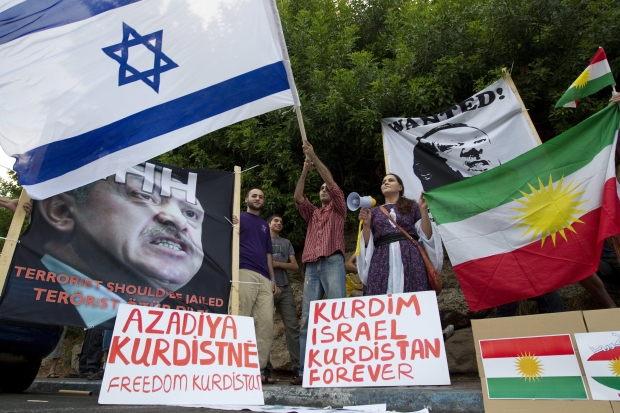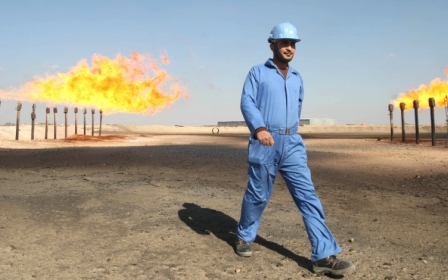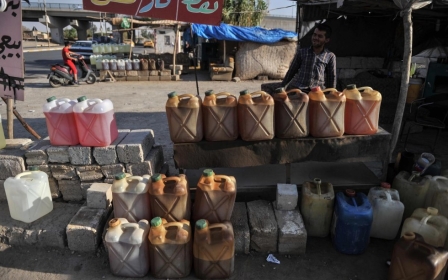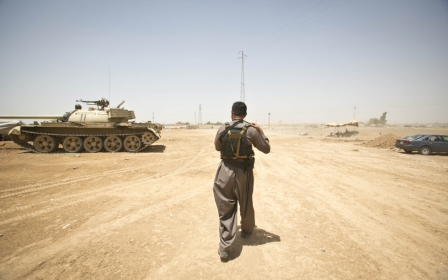Israel: 'democratic' Kurdistan to be independent soon
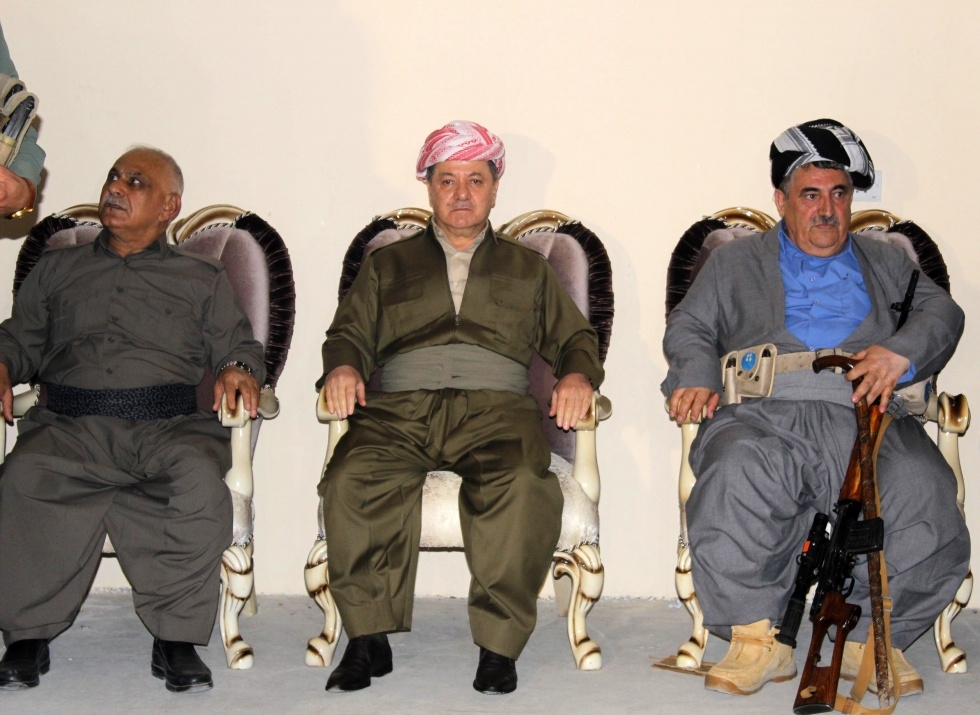
Israel told the United States on Thursday that Kurdish independence from the rest of Iraq has become a "foregone conclusion", amid reports that the Iraqi autonomous and "democratic" region is exporting oil to Israel.
"Iraq is breaking up before our eyes and it would appear that the creation of an independent Kurdish state is a foregone conclusion," Israeli Foreign Minister Lieberman's spokesman quoted him as telling US Secretary of State John Kerry, who recently met with Kurdish leaders during a visit to Iraq.
Israeli experts expect Tel Aviv to be quick to recognise a future Kurdish state, and Israel is thought to have maintained discreet ties with the Kurds since 1960s.
The mainly covert Kurdish-Israeli cooperation went on for decades before the 2003 US-led invasion of Iraq, and were in the fields of military, intelligence and business.
During a meeting with US President Barack Obama on Wednesday, Israeli President Shimon Peres praised the Kurds.
"The Kurds have, de facto, created their own state, which is democratic. One of the signs of a democracy is the granting of equality to women," Peres said.
But Israeli officials have been very careful with commenting on the level of Kurdish-Israeli ties.
Kurdish independence is desirable for Israel
"Our silence - in public, at least – is best. Any unnecessary utterance on our part can only harm them (Kurds),” senior Israeli defence official Amos Gilad was quoted as saying on Tuesday, hinting that Kurdish independence was desirable for Israel.
Eliezer Tsafrir, a former Mossad station chief in Kurdish region in Iraq, said secrecy regarding the nature of ties was requested by the Kurds.
"We'd love it to be out in the open, to have an embassy there, to have normal relations. But we keep it clandestine because that’s what they [the Kurds] want,” he told Reuters.
Iraq's Kurdish Regional Government denied that it is selling oil to Israel.
But according to Haaretz, Kurdish authorities had no problems with selling to Israel. A Kurdish source told the Israeli daily that "we are satisfied to have customers, as another facet of our independence. Any customer will benefit from steady supplies at good prices."
Harvey Morris, a UK-based commentator on Iraqi Kurdish affairs, told MEE that the Israelis see in the Kurdish region as a non-hostile entity that does not strongly sympathise with the Palestinians.
However, Israel's vocal support for an independent Kurdish state "does not make the Kurds look good in in front of the rest of the region," he noted.
In Israel, commentators welcome a strengthening of ties.
"Kurdistan actually is what many Jews mistakenly supposed Turkey to be: a Muslim-majority state with no ideological or theological objections to the idea of Jewish national self-determination," wrote Ben Cohen at the Jewish Press.
Iraq Kurds to commit 'all forces' to keep Kirkuk
Meanwhile, the leader of Iraq's autonomous Kurdish region said Thursday he is prepared to commit all of the region's forces to keep control of the disputed city of Kirkuk.
Kirkuk was captured by the Kurds following an army withdrawal in the face of advancing Sunni militants.
If needed, "we will bring all of our forces to preserve Kirkuk," said Massud Barzani, the president of Kurdish region, during a visit to the disputed city.
An official from Barzani's Kurdistan Democratic Party said that the visit aimed to inspect and raise morale of Kurdish security forces deployed near areas recently controlled by Sunni Arab militants.
The Kurdish region has been seeking to gain control of Kirkuk since the 2003 US-led invasion of Iraq, but their plans were opposed by successive federal governments in Baghdad.
Morris told MEE that the Kurds appear determined to include Kirkuk as part of the independent state that they aspire to have.
"But that will pose a big challenge for them," he said, adding that Iraq's central government is not likely to accept the status quo of them holding on to the disputed city.
Middle East Eye propose une couverture et une analyse indépendantes et incomparables du Moyen-Orient, de l’Afrique du Nord et d’autres régions du monde. Pour en savoir plus sur la reprise de ce contenu et les frais qui s’appliquent, veuillez remplir ce formulaire [en anglais]. Pour en savoir plus sur MEE, cliquez ici [en anglais].


